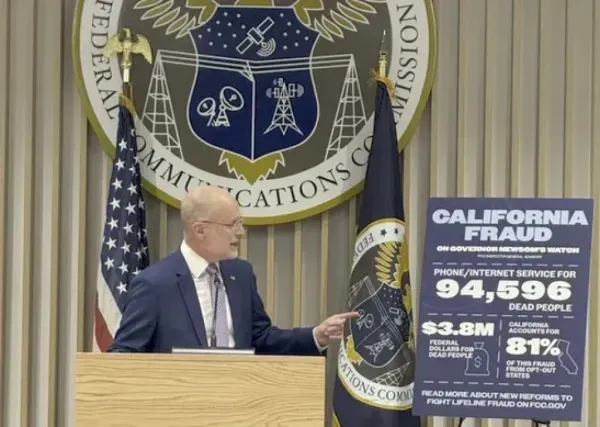GOP Lawmakers Urge Rip and Replace Funding in Lame Duck
Telecom attorneys said they weren't optimistic about a deal coming together.
Jake Neenan

WASHINGTON, Nov. 20, 2024 – Nine GOP lawmakers urged Congressional leaders Friday to fund the Rip and Replace program before the next congressional term starts in January. Some telecom attorneys said they were skeptical of movement on major telecom issues during the lame-duck session.
Without extra funding for the program, the lawmakers wrote, “Chinese equipment will continue to pose a significant national security risk to the United States and our communication networks. Additionally, several recipients of previously deployed funding would have to shut down their networks, leaving many rural and remote areas of the country without access to basic broadband services.”
The group was led by Sen. Steve Daines, R-Mont., and Rep. August Pfluger, R-Texas.
Rip and Replace was mandated by a 2020 law to reimburse smaller providers for swapping out network gear from Chinese companies Huawei and ZTE, deemed security threats by lawmakers. The program was allocated $1.9 billion, but the agency says it would need an additional $3.08 billion to fully pay all the program’s reimbursement requests.
Failure to replace the covered equipment would bar companies from participating in the FCC’s Universal Service Fund, which many rural networks rely on. Receiving Rip and Replace funds comes with a one-year deadline for completing the work, but the agency can and has been granting extensions as companies deal with the underfunding and other constraints.
As of July, when the FCC released its most recent status report on the program, 14 of the 126 participating companies had finished replacing their gear.
Efforts to shore up the extra money so far have largely been attached to legislation restoring the FCC’s ability to auction off airwaves, tapping the proceeds to fully fund the program, although other vehicles are possible. Telecom attorneys at an INCOMPAS webinar said they doubted a spectrum package would be passed in the lame-duck session.
“The bills I’ve seen, the excess fund for Rip and Replace come from future spectrum auctions,” said Patricia Cave, a senior associate in Morgan Lewis’s telecom, media, and technology practice group. “So I think to a certain extent, these issues are tied together. I’m not optimistic that they’ll be resolved before the end of this year.”
Robert McDowell, a partner at Cooley, said there “will be an attempt, certainly,” by Senate Commerce Committee Chairwoman Maria Cantwell, D-Wash., to move the spectrum bill she introduced this year. The bill would immediately fund both Rip and Replace and the ACP, tapping future auction proceeds to pay back the Treasury. It stalled amid disagreements with Republicans on the committee.
“But I think incoming Chairman Ted Cruz is going to want it to be his bill. The wireless industry, for the most part, supports that bill,” McDowell said.
Cruz, R-Texas, seen as all but certain to head the committee after Republicans took control of the chamber, put forward his own spectrum bill that would mandate more megahertz be sold off – hence the industry support – but not fund other programs.
Richard Ward, a senior policy advisor at Venable, said he was also pessimistic about Rip and Replace funding being attached to must-pass defense legislation, seen as another potential vehicle.
“I think they’re going to want to make NDAA as clean as possible," he said. “It just seems like it’s going to be difficult to put this together.”








Member discussion